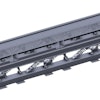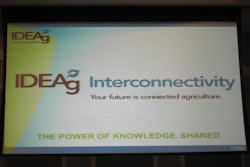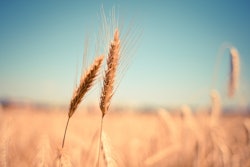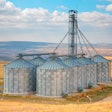Last June at the IDEAg Interconnectivity Conference, I had the opportunity to hearDr. Michael Boehlje, a well-known and well-respected ag economist from Purdue University. Dr. Boehlje, while well aware of today’s production agriculture, also looks into the future, focusing his work on strategic planning and thinking, particularly given the dynamic (turbulent?) business climate we all live and work in today.
This month, I attended the Equipment Manufacturers Conference (EMC) in San Diego, CA, pulled together by theAmerican Feed Industry Association. This group (which includes many of my customers — those who advertise to supportFeed & Grain’s media properties) represents the interests of equipment manufacturers who are AFIA members. They track regulatory issues, are particularly involved in all-important safety aspects surrounding equipment and its use and maintenance, but also must consider the future needs of their customers — those of you working in the feed, grain, pet food and ingredient side of the business.
I’ve attended many of the EMC meetings and always have been impressed with their focus on the future. And, in particular, the demands that will be placed on the grain and feed industry in the years ahead.
This ties in quite well with one of Dr. Boehlje’s discussion points: recognizing the management practices of today’s most progressive commercial producers. One of the main elements of this presentation was that top producers are recognizing that they don’t farm. Instead, they realize that they are part of a biological manufacturing system. They have inputs, produce a product and must be involved (in today’s world) in seeing that product all the way through the food chain, right to the dinner table.
So what do these forward-thinking, progressive agribusinesses do? Though Dr. Boehlje had a more extensive list, these stood out at me:
- Adapt quickly to new technologies that either lower costs or increase value
- Develop alliances with partners — learning from the partners and looking at ways to help grow their businesses
- Use automation and information technology to improve cost-effectiveness of management and productivity
- Focus on quality of product and consistency of production processes
- Recognize and emphasize buyer expectations in the products and production practices they choose to use.
Having worked with so many of the EMC members over the years, and meeting and talking with so many grain elevator operators and feed mill managers during that same time, I had to start wondering about what each group is doing to support each other and contribute to mutual success — as part of a biological manufacturing system.
So, if the five points above highlight what your most progressive customers or potential customers are doing, what are you putting in place in your business to better meet their needs? And what are you doing to establish some of these same business practices into your operation? Adapt quickly, leverage new technologies, recognize that you must work in partnership with your producers and with your buyers... these are key points.
In talking with so many equipment manufacturers, millwrights and design/build firms, I wonder about the same issue: Are these businesses partnering with feed, grain, flour, pet food, biofuel and other businesses, focusing on mutual success.
I’d certainly like to think so. But Dr. Boehlje, in painting the picture of our industry as a complex biological manufacturing system, made me think about the future. And not just about you — but aboutFeed & Grain’s role as an information hub in this vital industry.
Let me know what you think!


















